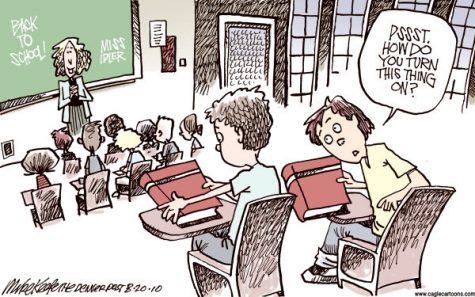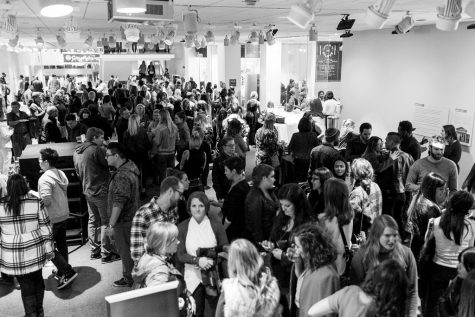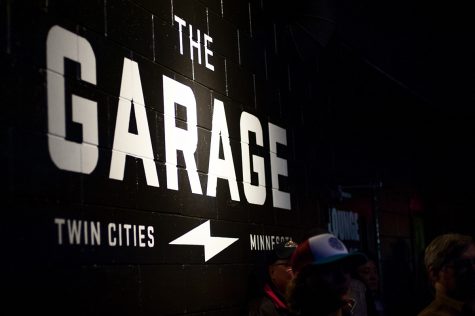Nostalgia: How A Generation Turned To The Past
The essence of the past is just a filter away
Nostalgia. That warm, fuzzy feeling you get when you watch an old movie from your childhood, or hear your favorite song from 2010. It’s a love of ‘the good old days.’ The concept of nostalgia is nothing new, but its emergence as part of mainstream culture seems almost paradoxical. Why is a young generation being defined by a love for what’s old?
The general consensus seems to point to technology.
Kids who grew up in the early 2000s saw advances in technology change the world. They matured alongside the world’s growing understanding of science. Cell phones are a perfect example – when millennials were younger, phones were tools. They were attached to walls and of little interest to us.
But time marched forward; wall mounted units became portable. They became small and personal. Soon enough, a cell phone was a computer in your pocket. There were countless apps to choose from. Young children could enjoy simple games, busy students could use their electronics to study, and teens could hand pick the best social media sites to use in their freetime.
So many different aspects of our life underwent these changes as we were growing up. We jumped from the basics to almost futuristic software so quickly that it makes the short time we’ve been alive feel like decades. That’s why we’re a generation that seems more content than any other in finding comfort in old Disney movies or simple board games.
“We were constantly being introduced to new toys, games, etc., so maybe that created an attachment to certain ones because it felt like it was gone so fast,” said senior Sophie Hanks.
We’re even willing to reach further into the past – to years we barely even remember. It’s easy to romanticize the essence of eras we didn’t live in, defining them only by their most iconic and interesting parts.
Because of its apparent effect on the youth demographic, nostalgia has even become a legitimate business strategy. It’s an easy target: bring back old logos, designs, or flavors, and BAM!–sales.
Simultaneously, entertainers are using the same idea, sometimes even as the core of their concepts. Prevalent YouTubers include Nostalgia Chick and The Nostalgia Critic. Even Netflix is drawing on this trend with their series Fuller House. Before this reboot, Friends being brought to the famed internet streaming site was one of the most talked about events of 2015. Television hasn’t ignored the trend either – there are many upcoming series reboots this year.
“It’s everywhere – Finding Dory, I am 100% going to see it because I loved Finding Nemo as a kid,” said Hanks. “There’s throwback sodas and taco flavored Doritos that made a comeback.”
But it all begs the question: was so much technological integration a good thing? Did we lose something along the way? It’s hard to not worry that the pastimes we sweetly savored in our childhoods are gone forever. The thought that climbing trees and creating your own adventures outdoors may be activities lost in time is not easy to swallow.
Sophomore Steven Schroeder believes that it isn’t so:“Technological advances have added to my childhood because I’m able to go back and say ‘wow, I did that.’ Instead of just having it as a memory in my head, I can physically hold or see the memory – which adds to the nostalgic feeling.”

It’s a joke that’s been told a million times…
Older generations selling their younger counterparts short isn’t new. But millennials in particular seem to be the most harshly attacked for their use of technology. Truthfully, we’ve all seen a political comic or art piece that berates our generation for tech addiction. Our generation’s increased interest in social justice becomes overshadowed by the idea that our movements are all talk, or merely excuses to shift the spotlight to ourselves.
“I personally find it slightly offensive to us as millennials,” said sophomore Emily Wescott. “Older generations assume that students these days are so technology based, and while, yes, we are, we still know what books are.”
But maybe it’s not technology that makes us yearn for the past – maybe it’s fear. Some have theorized that our young generation grasps for the stable idea of the past as a means of coping with an uncertain future.
Insight analyst Cassandra Mcintosh explained how growing up in a recession could make people more prone to nostalgia: “Millennials are coming of age in an age of economic turmoil – a difficult job market. Therefore, they end up romanticizing simpler times much more – even those times they weren’t around for.”
All of these factors make up a type of age that’s never been lived before. It’s easy to see how a generation that grew up in a rapidly evolving present could fear what might await them in the future.
But maybe we shouldn’t characterize an entire generation on what they enjoy, be it the past, technology, or dreams of a stable job. Times change and bring new definitions of our culture with them – it’s inevitable. Savoring the days of old and finding joy in them is just another way of creating happiness in life. So what’s the harm in sitting back and reminiscing?








